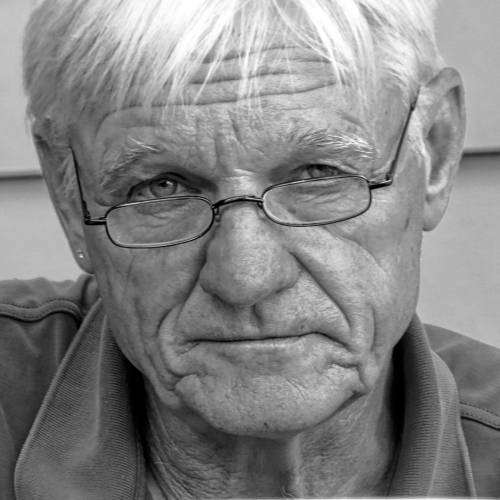The World Keeps Turning: The war machine marches on

Allen Woods FILE PHOTO
| Published: 11-10-2023 5:00 PM |
Veterans Day is, or should be, a solemn occasion rather than a celebration. Few soldiers who served in combat want to celebrate their actions in conditions no one would wish for: kill or be killed by anonymous enemies who have family and loved ones just like the soldiers beside you. Others can recognize and honor your service, and soldiers themselves can feel proud of risking their lives for others, but few look back on their forced abandonment of humanity happily.
Again, we see the international war machine churning through another generation of young men and women, leaving disaster and destruction in its wake in the Mideast, Ukraine, Africa, and Asia. In nearly every case, it is the political leaders who start and continue violent wars, using the poorest and most desperate as what came to be known in the 1800s as “cannon fodder” (literally, cheap food for the voracious weapons of war) without risking their own lives, or those of their families or the richest in society. During the Vietnam War, this sacrifice of the young generation by the old was the origin of the catchphrase “Don’t trust anyone over 30” since it was an older generation sending young men, many in their teens, against their will into a hellish war thousands of miles from home.
As I’ve criticized the worldwide use of violence to “solve” conflicts, some have asked what approach I think could work. Certainly, democratically electing leaders who can think outside of the war “box” would be a start. But that requires leaders in other powerful countries to willingly replace their reliance on military options as well, and finding enough of them worldwide to change the entire arc of human history has so far been fruitless. As we know, all it takes is one madman to suck regional or worldwide powers into a conflict.
Years ago, during a period of intense interest in William Faulkner’s winding excursions into the dense jungle of unending sentences, I happened upon some of his commentary on war in “A Fable,” a fictional account set during World War I in which a French brigade rebels against another suicidal order to attack across no man’s land between the trenches. It is a highly-stylized allegory in which the death of the mutinous leader is very similar to that of Jesus Christ in the Bible.
But I later found out that there were at least a few days in World War I in which the soldiers themselves, estimated at as many as 100,000, stopped the war. On Christmas Eve 1914, years before America formally committed troops, soldiers on both sides (British, French, and Belgians vs. Germans) voluntarily stopped firing after one side and then the other began singing Christmas carols that could be heard across a relatively narrow expanse between the trenches. One thing led to another, and in a variety of places and ways, opposing soldiers celebrated together by allowing the dead to be buried, exchanging small gifts and personal items (buttons, food), and even playing a bit of impromptu soccer. In some areas, this truce only lasted a day; in others, nearly a week.
But war returned soon enough. For almost four more years, bodies continued to pile up and soldiers were maimed by artillery and blinded by poison gas. Needless to say, officers on both sides were displeased with the spontaneous demonstration of humanity early in the war. To prevent a recurrence, orders were routinely given before Christmas to increase shelling, and the low-level infantry were reminded that failure to follow orders would result in court martial and imprisonment, even death.
Today, the war machine grinds on, blood shed on one side demanding more blood on the other. Some people wonder at the number of refugees in the world. Currently, more than 114 million people around the world — men, women, and children — are seeking safety from violence. As a member of the generation that Garrison Keillor observed “sang ‘We Shall Overcome’ but didn’t,” I still dream that Veterans Day might one day be celebrated as a harsh memory of the past rather than a grim picture of the present. Instead, I’m left with anger and rage that we continue to sacrifice young soldier’s lives and civilian lives of all ages for some hazy ideal that cannot be achieved with violence. As poet and novelist Maya Angelou observed, “Hate, it has caused a lot of problems in the world, but it hasn’t solved one yet.”
Allen Woods is a freelance writer, author of the Revolutionary-era historical fiction novel “The Sword and Scabbard,” and Greenfield resident. His column appears regularly on Saturdays. Comments are welcome here or at awoods2846@gmail.com.
Article continues after...
Yesterday's Most Read Articles

 As I See It: Of dogs and men
As I See It: Of dogs and men Connecting the Dots: ‘They can say they don’t care, but they can’t say they didn’t know’
Connecting the Dots: ‘They can say they don’t care, but they can’t say they didn’t know’ Karen Traub: What it means when you lose a public library
Karen Traub: What it means when you lose a public library My Turn: Too often, what we got sold not what we got
My Turn: Too often, what we got sold not what we got
